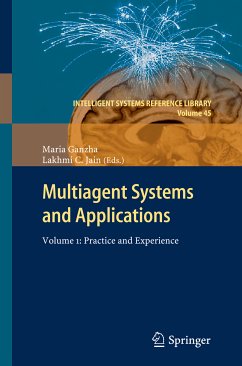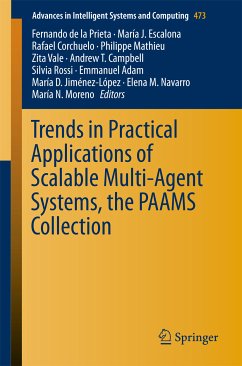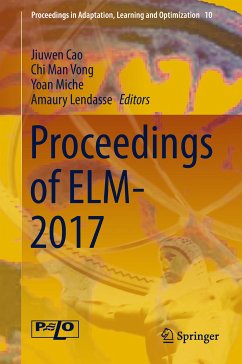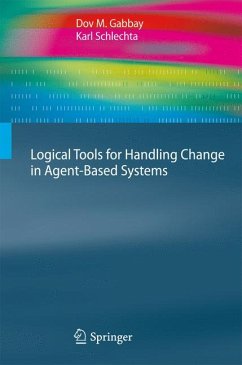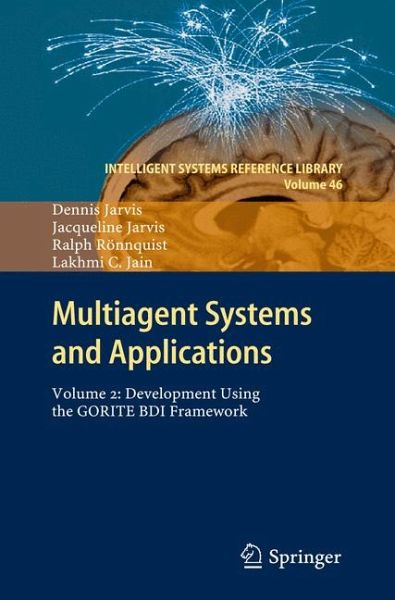
Multiagent Systems and Applications (eBook, PDF)
Volume 2: Development Using the GORITE BDI Framework
Versandkostenfrei!
Sofort per Download lieferbar
72,95 €
inkl. MwSt.
Weitere Ausgaben:

PAYBACK Punkte
36 °P sammeln!
Since its conception almost 30 years ago, the BDI (Belief Desire Intention) model of agency has become established, along with Soar, as the approach of choice for practitioners in the development of knowledge intensive agent applications. However, in developing BDI agent applications for over 15 years, the authors of this book have observed a disconnect between what the BDI model provides and what is actually required of an agent model in order to build practical systems. The GORITE BDI framework was developed to address this gap and this book is written for students, researchers and practitio...
Since its conception almost 30 years ago, the BDI (Belief Desire Intention) model of agency has become established, along with Soar, as the approach of choice for practitioners in the development of knowledge intensive agent applications. However, in developing BDI agent applications for over 15 years, the authors of this book have observed a disconnect between what the BDI model provides and what is actually required of an agent model in order to build practical systems. The GORITE BDI framework was developed to address this gap and this book is written for students, researchers and practitioners who wish to gain a practical understanding of how GORITE is used to develop BDI agent applications. In this regard, a feature of the book is the use of complete, annotated examples. As GORITE is a Java framework, a familiarity with Java (or a similar language) is assumed, but no prior knowledge of the BDI model is required.
Dieser Download kann aus rechtlichen Gründen nur mit Rechnungsadresse in A, B, BG, CY, CZ, D, DK, EW, E, FIN, F, GR, HR, H, IRL, I, LT, L, LR, M, NL, PL, P, R, S, SLO, SK ausgeliefert werden.




